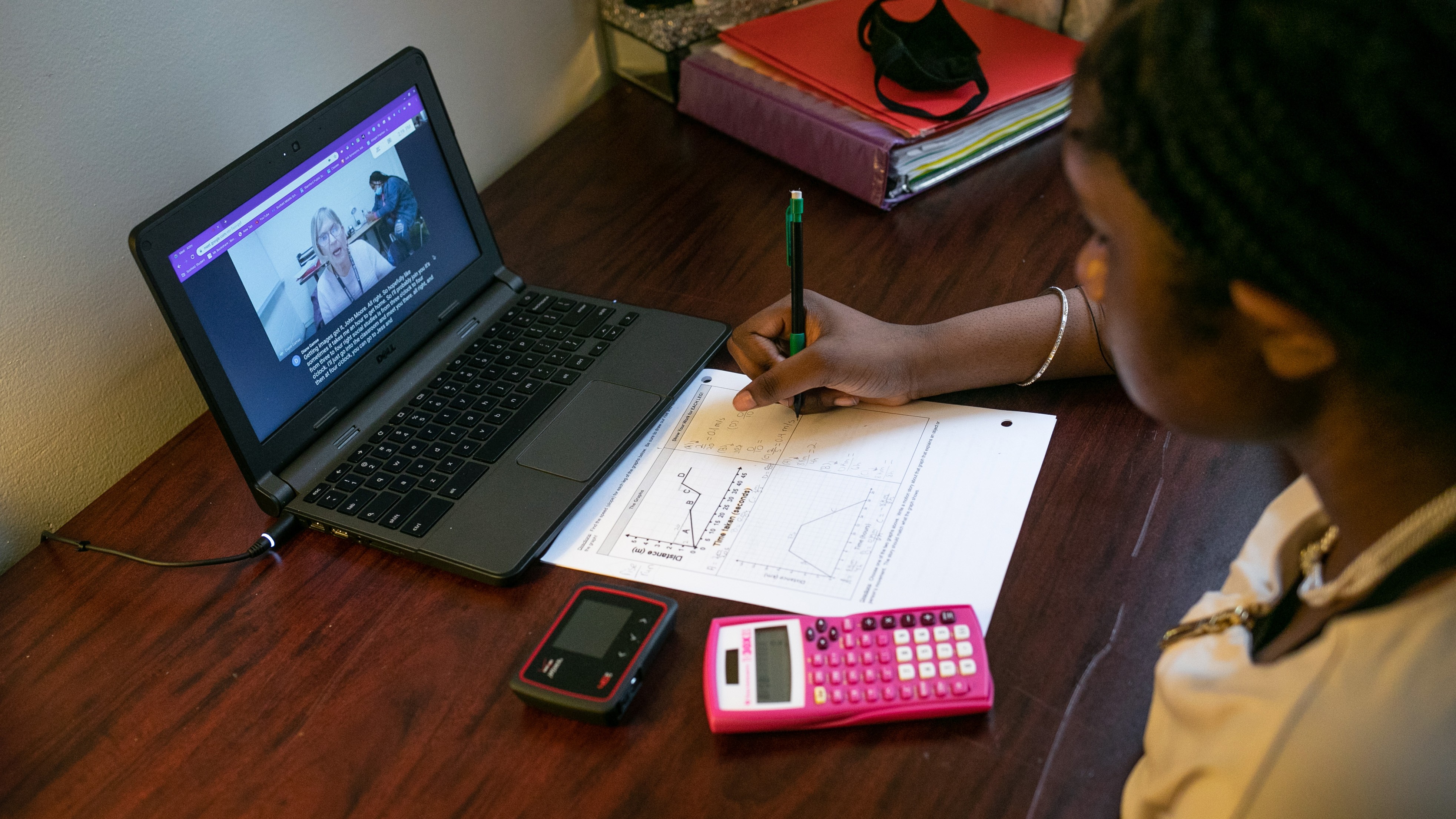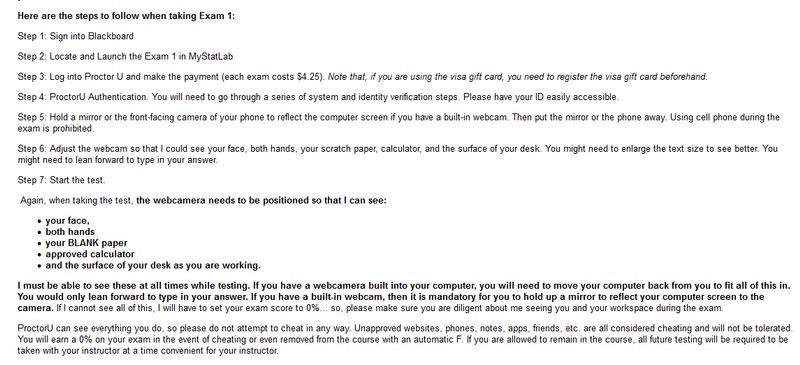Among the wild instructions that students using programs like ProctorU and Respondus are required to follow are the requirements to use mirrors and 3D scan their room.

In October of this year, Canadian students from Wilfrid Laurier University preparing for the exam had to memorize more than just the knowledge they would be asked. They also had to learn a complex set of instructions on how to conduct these exams.
The university has about 18,500 students, and it was one of many to adopt special tracking programs designed to catch cheating students. The university has contracted with Respondus, one of the many companies offering student testing tracking software. Such programs track the movements of the head, eyes, mouse clicks, and more. This kind of computer tracking has become a new reality for tens of thousands of students around the world. Due to the coronavirus pandemic, they have to study remotely, often paying full tuition fees . They are being watched by programs that an increasing number of critics label as discriminatory and overly intrusive.
Respondus, like its competitors in the exam tracking industry, uses a combination of face recognition, eye tracking, and algorithms that track metric “anomalies” such as head movement, mouse clicks, and specific scroll speed. In this way, they mark students who fall outside the class averages. Also, these programs often require students to perform a 360-degree scan of their entire room in order to ensure it is free of prohibited materials.
Some of the requirements imposed on Laurier's students go even further.
In the exam instructions sent out to students, one of the professors wrotethat any student wishing to use earplugs must first “position the earplugs in the camera's field of view, and tap them with a hard object before inserting them into their ears. If these are really ordinary foam earplugs, they will not suffer. "
Other instructors require students to buy a small mirror and hold it in front of a webcam before starting the test to ensure there is no text next to it. Another professor saidstudents to "prohibit other household members from using the Internet during your exam." This is probably necessary because the tracking software is too demanding on the speed of the Internet connection. He also said that the students should not sit next to the pictures of animals, as the software can mark such an image, considering it a sign of another person in the room. Not a very encouraging claim, given that one of the main criticisms of such software is the fact that it often fails to recognize a dark-skinned student on video.
At Laurier University, there was a surge of outrage over the products of Respondus. Under petitions demanding the administration of the institution to prohibit this software or changethe terms of use have been signed by several thousand students. There are more than enough similar petitions in other educational institutions.
Laurier is not the only institution where students have to put up with challenging and often wild exam requirements. At the Arkansas Tech University, a list of exam instructions was sent to some students using the ProctorU tracking software. Before starting the exam, you need to hold a mirror in front of the front camera of your phone so that it reflects the computer screen, and then position the webcam so that the instructor can “see your face, both hands, draft, calculator and tabletop”. So it was written in the email that came to the disposal of the editors.
“I have to be able to see it all throughout the exam. If your webcam is built into your computer, you will need to move it away so that it all fits, ”the instructor wrote in an email about the rules for passing the exam with ProctorU. "If I don't see all of this, I'll give you 0%."

In most universities, the administration did not set standards for the use of such software. As a result, where these programs are used, students increasingly begin to resent not only themselves, but also because of how individual professors use them.
On ratemyprofessors.com, students can comment on courses anonymously and grade professors. There began to accumulate negative reviewsassociated with tracking programs such as Respondus, Proctorio, and ProctorU.
“On the PHYS 205 EC summer course, more than 60 students received an F because the Proctorio program did not register their work, and the professor said that he could not do anything,” the student wrote about the professor at Concordia University, giving him a grade of 1.
“With the coronavirus, everything has become terrible. The professor switched to ProctorU, and she didn't care that ProctorU closed in the middle of the exam. She said that she would only accept the answers that the program recorded. Awful course, " wrote an Austin State College student.
The student community met with Laurier's administration to bring complaints about the program. The university has already had to drop the requirement for all students taking a math course to purchase an external webcam and tripod. Management acknowledged that this will be difficult due to the shortage of webcams caused by the pandemic.
In a public statement, university leaders said they "will work with faculties and instructors to jointly develop solutions to problems with exam and test requirements." University spokesman Graham Mitchell declined to disclose details of such decisions.
The university began using the webcam-requiring version of Respondus in 2015, although it was not used to the same extent as during the pandemic. Mitchell did not answer the question of whether the decision to use the tracking program was caused by research interest, a management demand, or a large number of cheats. He said the university does not track the number of cheats or how many times the Respondus program recorded suspicious behavior.
The university has guidelines that should help faculty develop guidelines for remote examinations, Mitchell said. When asked if the university supports some of the student's requirements, such as that no one in the home should use the Internet during the exam, Mitchell wrote: “We know that students are struggling to adapt to the new, challenging online learning environment. needed during a pandemic. These demands were not made by the university. In some cases, in an attempt to help answer all of the students' questions regarding remote exams, instructors gave very detailed instructions to anticipate any potential problems. This is especially important for students who take the exam for the first time in this way. "
Apparently, Laurier's students do not really trust their administration, and do not accept the excuses that often make companies selling tracking software and universities that use it - they say, since the professors decide how to use these programs, they are responsible for everything related these are the problems.
One third-year computer science student at the university, who asked to remain anonymous, told the editorial board that the administration, by stepping back from responsibility, encourages professors to introduce increasingly punitive policies. “When I used Respondus before the pandemic, there was nothing like that,” he said. "Everything was very cultural compared to what the teachers now demand."